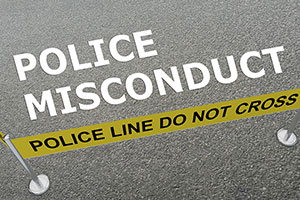Derek Chauvin is on trial in Minnesota for second degree felony murder, third degree murder, and second-degree manslaughter. The charges arise out of George Floyd’s death under circumstances that sparked nationwide protests regarding the use of force against unarmed suspects. Cellphone and bodycam videos establish that Chauvin knelt on Floyd’s neck and that Floyd repeatedly told Chauvin, “I can’t breathe.”
None of the crimes require proof that Chauvin intended to cause Floyd’s death. Second degree murder requires proof that Chauvin caused Floyd’s death, without intending to do so, while Chauvin was committing a felony — in this case, third degree assault. Third degree murder requires proof that Chauvin acted with a depraved state of mind and that his conduct was imminently dangerous to Floyd. That standard is essentially one of reckless behavior coupled with not caring about the harm the behavior might cause. Third degree manslaughter requires proof that Chauvin’s negligent actions caused Floyd’s death.
Each crime requires proof that Chauvin’s actions were a substantial cause of Floyd’s death. Chauvin’s actions need not have been the only cause of death. Chauvin can be held responsible for Floyd’s death if Floyd would not have died in the absence of Chauvin’s conduct. Expert witnesses for the prosecution and Chauvin will debate whether kneeling on Floyd’s neck contributed to his death.
Forensic Pathologists
The official autopsy report by the Hennepin County Medical Examiner’s Office concluded that Floyd died from cardiopulmonary arrest — in simple terms, his heart stopped beating effectively. The autopsy determined that neck compression while restraining Floyd in handcuffs was a cause of the cardiopulmonary arrest. The medical examiner classified the death as a homicide.
Defense experts are likely to focus on other potential causes of death, including Floyd’s hypertensive heart disease and his ingestion of fentanyl and methamphetamine. Experts might opine that excited delirium caused by drug abuse was the cause of Floyd’s death, although “excited delirium syndrome” is controversial and the mechanism of death is not well understood.
Defense experts may also call attention to the absence of evidence of strangulation. A pathologist who isn’t connected to the case has explained that compression of the neck can prevent oxygen from reaching the brain by blocking the airway. Neck compression caused by kneeling would not leave the same ligature marks caused by strangling someone with a rope or wire. That pathologist suggests that Floyd’s underlying health conditions were not the cause of his death. Floyd was, after all, living with those conditions before he encountered Chauvin.
The prosecution has identified five forensic pathologists who may testify for the state. Three of those witnesses are employed by Hennepin County. The defense will apparently rely on the testimony of Dr. David Fowler, a Baltimore pathologist who has testified for both the prosecution and defense in multiple homicide prosecutions.
Defense Experts
In addition to Dr. Fowler, the defense has identified a forensic toxicologist, a forensic psychiatrist, and a doctor of emergency medicine as medical experts. The defense has also identified Barry Brodd as a use of force expert.
Brodd’s resume indicates that Brodd is a former police officer who has served as an expert witness in use of force litigation since 1995. Use of force experts generally testify about the policies and practices that determine when an officer’s use of force is justified, including the degree of force that officers are allowed to use under different circumstances.
Whether Brodd will be allowed to testify that it was reasonable for Chauvin to kneel on Floyd’s neck for nine minutes is unclear. Experts are often allowed to explain whether an officer’s conduct is objectively reasonable. However, some courts have held that only a jury can determine whether an officer’s use of force was reasonable in light of the facts that the jury accepts as true. Those courts view an expert’s opinion about whether the officer’s use of force was justified as intruding on the jury’s function.
Forensic Psychologist Excluded
The prosecution intended to call forensic psychiatrist Dr. Sarah Vinson as an expert witness. The prosecution wanted Dr. Vinson to explain how people in Floyd’s position react to traumatic events. In particular, she would have testified that “Floyd’s behavior as officers attempted to put him into the squad car was consistent with any reasonable person’s anxiety or panic during a traumatic event.” The testimony was meant to foreclose or counter the argument that Floyd was resisting arrest.
Worried that Dr. Vinson’s testimony might open the door to evidence of Floyd’s similar emotional reaction to an arrest in 2019, the court ruled Dr. Vinson’s testimony inadmissible. The court also excluded most evidence regarding Floyd’s behavior during that arrest.




